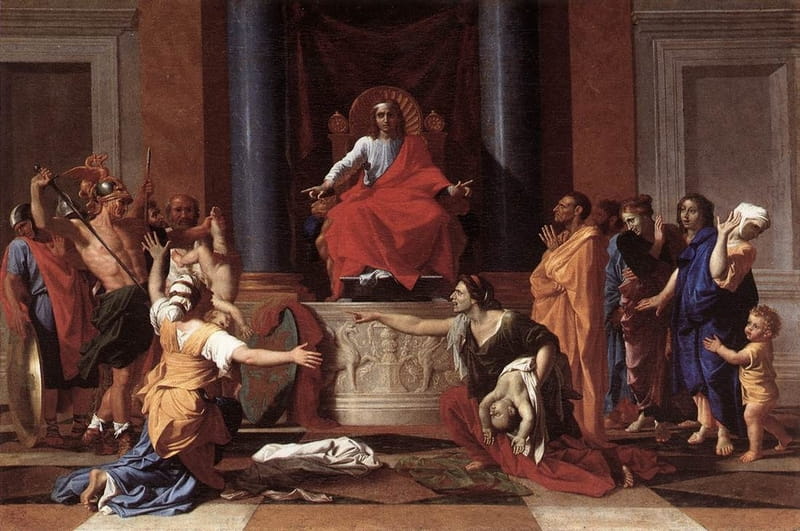XVII SUNDAY IN ORDINARY TIME - 1 Kings 3:5,7-12
Solomon is celebrated as a great king, remembered for his good administration, which brought peace, prosperity and stability to his people. The Holy Scriptures present him as someone who became known for his outstanding wisdom, shown in the way he solved difficult problems and judged with fairness. This Sunday’s first reading, taken from the first book of Kings presents Solomon asking wisdom from the Lord, so that he may “discern between good and evil”. The Lord was pleased with this request and granted him much more than he had asked for. Later generations, looking back at history, remembered and glorified Solomon’s kingdom as the golden age of the people of Israel. And they realised that such times were only possible through the wisdom of God granted to the rulers and to the people in general. Jesus would say that if we ask for what is really important, God will give it to us in abundance. In the prayer of Our Father, Jesus taught us to ask earnestly: May your kingdom come. It will be a kingdom of freedom, justice and love and that kingdom will only become a reality if we are guided by the Holy Spirit, who is the source of all wisdom. Without God’s wisdom, we will become entrapped in the pursuit of wealth, power and glory for ourselves.
If we read attentively everything written about Solomon in the Scriptures, we will discover that he was not the holy man praised and glorified in many other passages. He got the throne through the intrigue of his mother and her friends, taking the place of his elder brother Adonijah. Then, in order to establish his throne and secure his power, he took immediate action against those who might be a threat to him, giving orders to kill Adonijah, who had claims to the throne, and the general Joab, who supported him and banishing the high priest Abiathar. Later in life, enjoying peace and wealth, he forgot his commitment to the Lord and built altars and temples to the foreign gods of his wives. Solomon allowed his heart to be corrupted by power and wealth, in spite of the great gifts he had received from the Lord.
In his parables, Jesus speaks of the end of times as a time of judgement. The dragnet will be cast into the world, bringing “in a haul of all kinds.” Then, “the angels will appear and separate the wicked from the just to throw them into the blazing furnace where there will be weeping and grinding of teeth.” (Mt 13:49-50). It is not enough to start well; the most important is to end well. Our faithfulness will be tested to the end. May the Lord grant us perseverance and steadfastness in keeping the word of the Lord.

